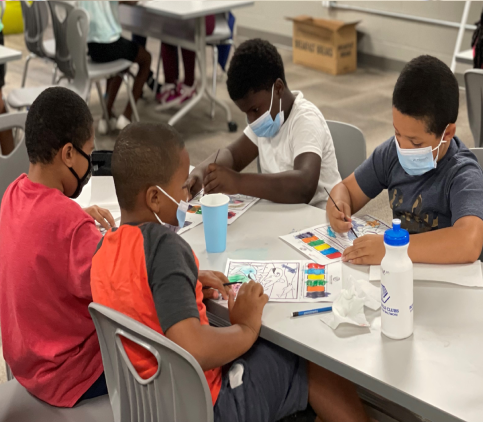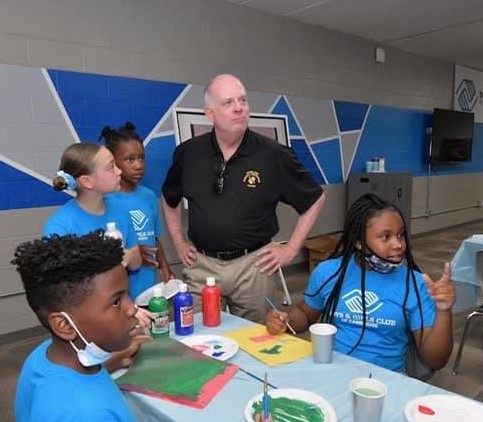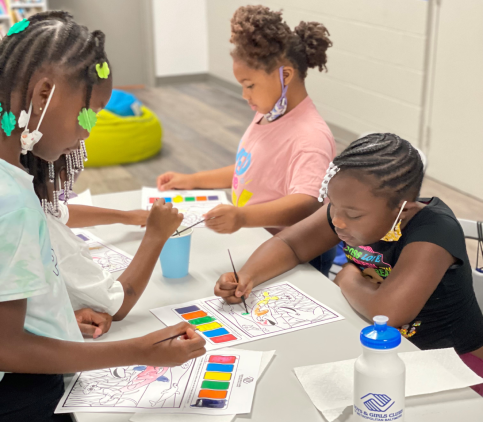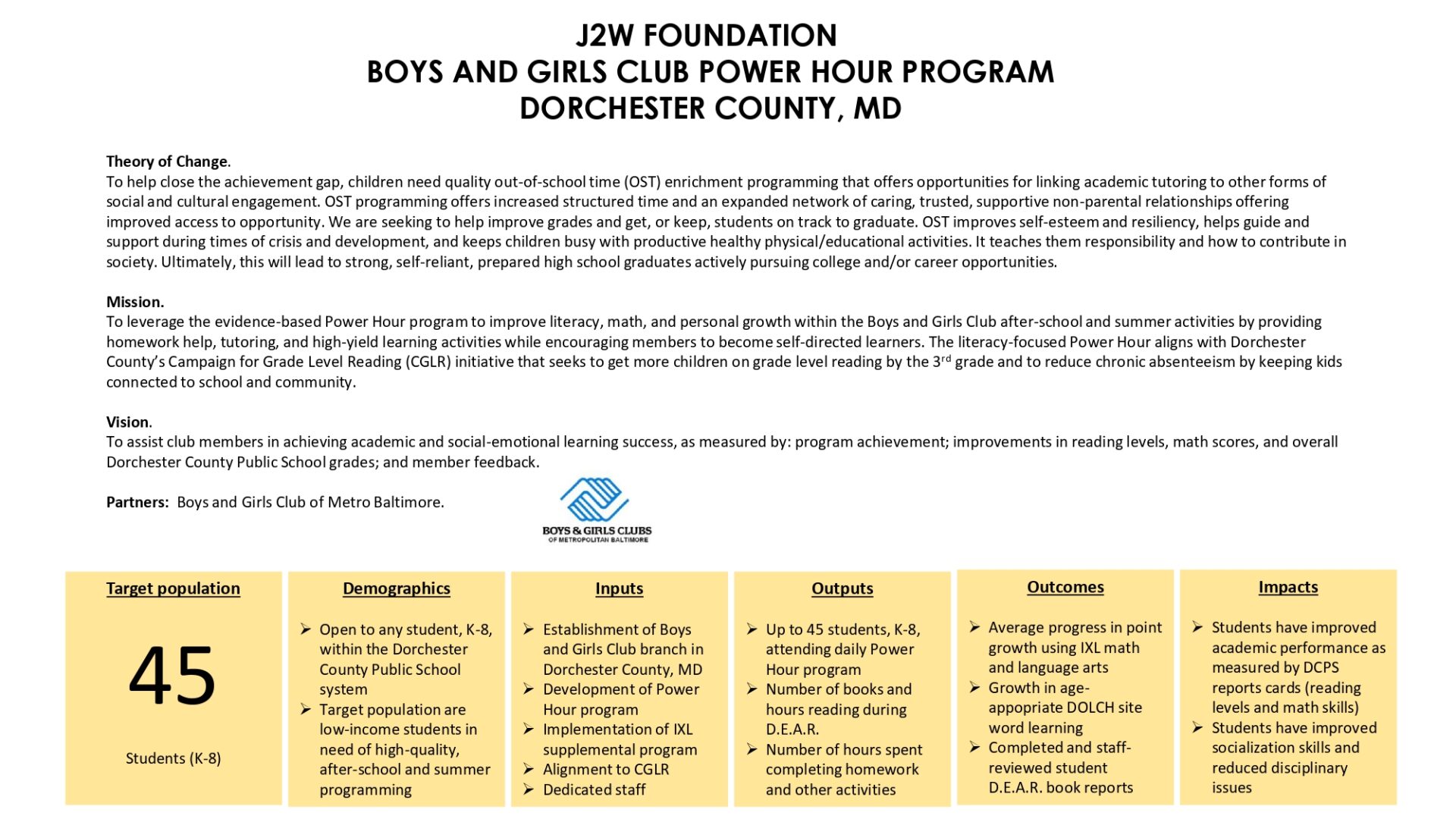Program Summary
Partnering with the Boys and Girls Club of Metro Baltimore’s Dorchester County, MD site at Leonard’s Lane to develop a literacy-focused Power Hour program as part of the club’s after-school and summer activities
- Power Hour helps club members ages 6-18 achieve academic success by providing homework help, tutoring, and high-yield literacy learning activities while encouraging members to become self-directed learners
- Includes allotted time for homework completion, printed program materials including a resource guide for those members who do not have homework, and poster-sized PowerPoint charts for tracking and rewarding participants’ progress
- Will launch its D.E.A.R. (Drop Everything and Read) program. D.E.A.R. serves to reunite club members with their love for reading. Kids are able to pick a book of their choosing and dedicate 30 minutes a day to quiet reading time. In order for them to get “credit” for reading the book, they must complete a Book Review after, which was created by a BGCMB staff member. Once the kids complete the book review, they receive tickets, which they can save for various incentives
- Will provide specific time for IXL programming with all elementary and middle school aged members. IXL will allow them opportunities to grow their knowledge in various subjects, including Math and Language Arts



Measures of Performance
For more information, please see Data Analysis section at the bottom of the page
Measures of Performance
For more information, please see Data Analysis section at the bottom of the page
End of Program
Data Analysis
- Goal: To assist the new Dorchester County’s Boys and Girls Club with growing presence and programming in the area. J2W is funding the Power Hour program with the intentional inclusion of a literacy-focused strategy.
- The literacy program is called Drop Everything and Read (DEAR). During the Power Hour timeframe after school, participants spend dedicated time reading curated books that are age-appropriate and then write book reports to ensure comprehension and completion. Reports are read and discussed with each child and family. The program runs several times per week.
- During DEAR, students also have the opportunity to work with the IXL online academic enrichment program, which gives each student grade level appropriate problems to solve in both language arts and mathematics. The IXL allows each child to be given diagnostic growth measurements over time. Club Members were able to make minutes count by working hard on their reading along with engaging in academics such as Language Arts & Math through IXL, DEAR, and Fun with a Purpose.
- At the close of the 2-year program (spring 2024), several key outputs and outcomes:
- The goal was to ensure the program ran with at least 40 kids participating in the DEAR program. At the end of the 2-year program, we had 51 kids in the program, earning a “green” health score.
- Our goal for the end of year-2 was to ensure each child is reading approximately 100 books by the last quarter and spending about 30 hours per quarter reading while in DEAR. At the conclusion of the second year, children averaged 98 books/quarter and 11 hours/child (both “yellow”). Space constraints – at times – caused disruption due to the number of kids. Moving forward, the Club will be exploring physical space adjustments to improve concentration and quiet time.
- Our goal was to see positive growth in their IXL math and language arts performance. Our goal was to see at least an aggregated 25 point improvement in each area. In language arts (reading), children averaged 29 point growth (“green”) and, in math, they averaged 23 point growth (“yellow”). IXL has been a strong addition to the academic interventions provided to Club members and will continue to be used moving forward.
- We had a year-end goal of having at least 65% of the Power Hour K-3 students being able to identify sight words (Dolch reading words). At the end of year-2, 100% of the children were able to ID sight words, and thus scored this area as “green.”
- We developed and administered an annual social-emotional survey to the second year’s cohort of students, exploring feelings of self-identified social-emotional development, how to cope with challenges, and ways to manage stress. At the beginning of school year 23-24, we established benchmarks for each with scores of 22%, 61%, and 59%, respectively. The end-of-year scores were mostly higher, which reflects positive growth. Feelings of social-emotional development rose from 22% to 34%; how to cope with challenges remained level at 61%; and ways to manage stress improved from 59% to 77%. We assessed this growth as “yellow” since none reached the initial goals set for this year.
- The other major outcome to note is the program will continue with other funding sources after this J2W grant ends. The grant was able to establish a sustainable program that provides academic supports, social-emotional benefit, and data-driven successes for its members.
- Program Conclusion: The Boys and Girls Club Power Hour program was a very strong strategic success, with moderate successes within the individual program. Ultimately, as a co-investor into the entrée of the Boys and Girls Club into Dorchester County, we believe simply bringing in an additional, professionalized program like the Boys and Girls Club is a game-changer for the community. The out-of-school-time non-profit adds a federated, experienced, and proven organization to the county that can share years of best practice while also significantly increasing access to quality OST programming for families in need. Further, the Power Hour program itself certainly did – and will – provide participants with additional literacy resources and supports, even if the gains may be limited to moderate in impact. We do expect, as the program matures in Dorchester County, to see further growth gains over time.

